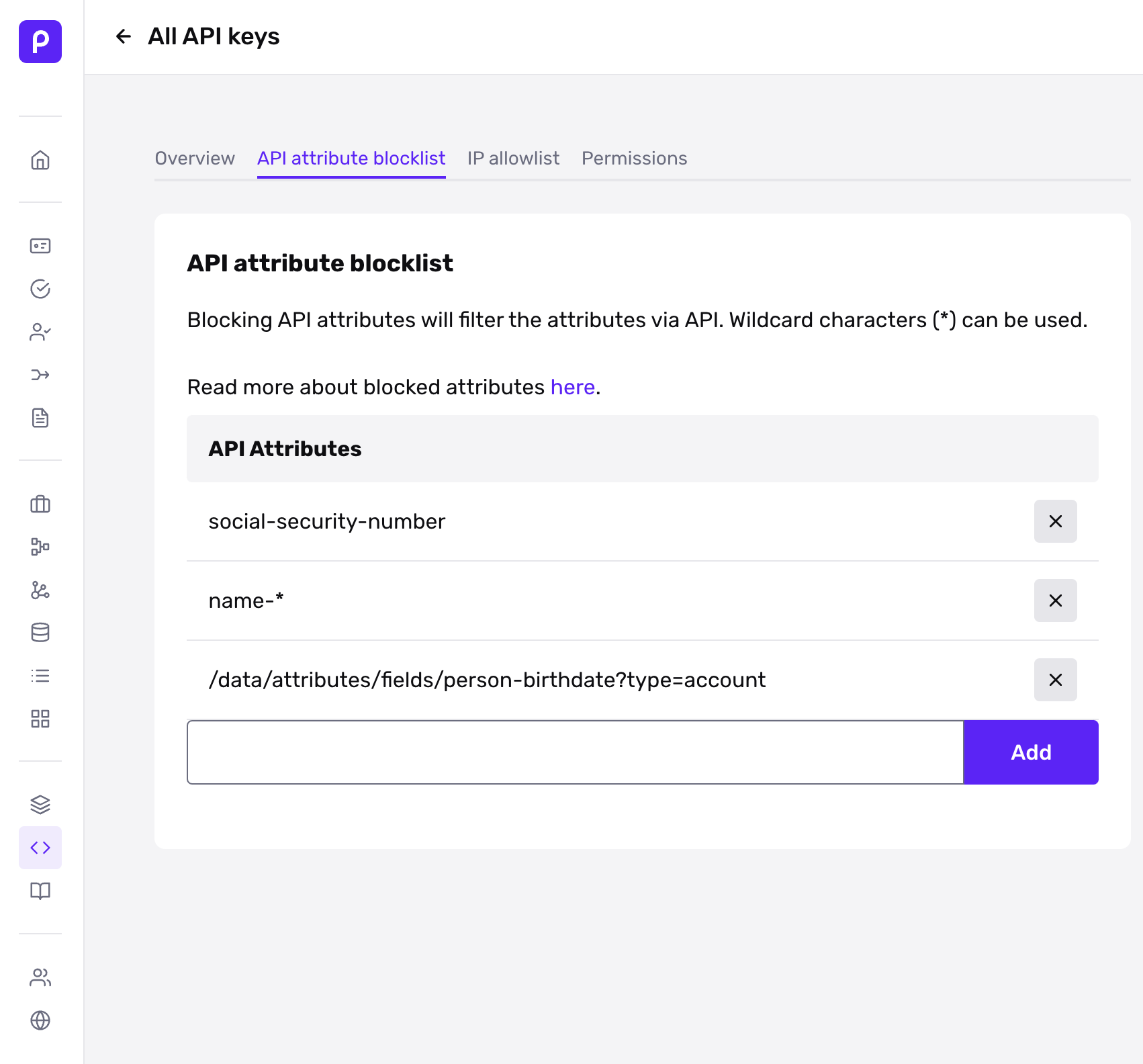API Key/Webook Attribute Blocklist
Filter out parts of the payload from API responses or Webhooks
If you don't want certain information to get to your server, you can filter out information via API Key or Webhooks blocklists.

Example
Let's say you get the following information when you retrieve your Inquiry (via Retrieve an Inquiry).
{
"data": {
"type": "inquiry",
"id": "inq_XN8jxMoEhUeihzNypSaFKFfo",
"attributes": {
"status": "completed",
"fields": {
"birthdate": {
"type": "date",
"value": "1977-07-17"
},
"name-last": {
"type": "string",
"value": "Sample"
},
"name-first": {
"type": "string",
"value": "Alexander"
},
"..." : "..."
},
"...": "..."
}
}
}
If you didn't want to get the name of the individual, you could add name-first and name-last to your blocklist, and the resulting payload would like like this.
{
"data": {
"type": "inquiry",
"id": "inq_XN8jxMoEhUeihzNypSaFKFfo",
"attributes": {
"status": "completed",
"fields": {
"birthdate": {
"type": "date",
"value": "1977-07-17"
},
"..." : "..."
},
"...": "..."
}
}
}
Simple Syntax
In the example at the top the name-first and name-last use the simple syntax. If that key matches anything on any object, it will not be returned to you. You can also use a * to just have one entry name-* instead. Another common use is address-*.
email-address
birthdate
name-*
address-*
Fully Qualified Syntax
You might not always want to filter out a value, for example you might want the value when you retrieve the Verification but not the Inquiry. One way to avoid is use the fully qualified path in the payload. In the original example, if you want to filter out the name, your blocklist might look like this.
/data/attributes/fields/name-*?type=inquiry
The path uses each key on the JSON payload returned as a step in a URI-like path. The optional type parameter is how you can specify to which type of object the blocklist entry should apply.
'/data/attributes/birthdate',
'/data/attributes/fields/name-*',
'/data/attributes/fields/*-number'
'/data/attributes/fields/selected-country-code?type=inquiry'
'/data/attributes/fields/identification-class?type=case'
Updated over 2 years ago
